Everything you need to know about intimate hygiene

Not to say that the topic of female intimate hygiene is covered so widely and delicately that every girl knows everything about her from childhood. Even in the school course in biology and medical knowledge, unforgivably little is said about this. But it is not too late, even for adult women, to replenish their knowledge.
What it is?
Intimate hygiene is an integral part of your daily care. General body hygiene and groin hygiene cannot be combined into one procedure, they must be distinguished. If only because the pH of the vagina is more acidic and cannot be disturbed. I must say that experts call the vagina a unique self-cleaning environment that has its own ways to maintain an optimal balance of microflora.
Ideally, every woman should not only know well the characteristics of her body, but also monitor the characteristics of the cycle, the nature of the discharge. For example, white and transparent highlights are perfectly normal. A special lubricant is produced in the uterine glands, which is needed to maintain the natural moisture of the vagina. Allocation is nothing more than a natural way of self-cleaning of the genitals.... It is bad if they have a smell, a strange color, lead to itching and irritation.
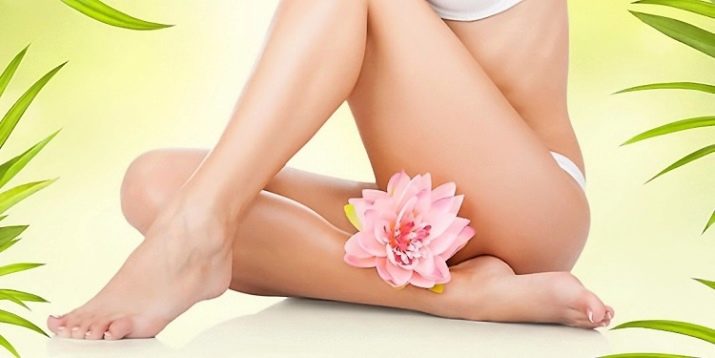
How much discharge should be is an individual question. You can keep a diary of self-observation, which should then be discussed with the gynecologist. The nature of the discharge varies depending on the day of the cycle. Before menstruation, they usually become more, they are thicker and more noticeable, this is also normal.
Intimate hygiene of a woman is care of the groin area, regular elementary self-examination and an understanding of what the care will be during menstruation, in the postpartum period, and so on.
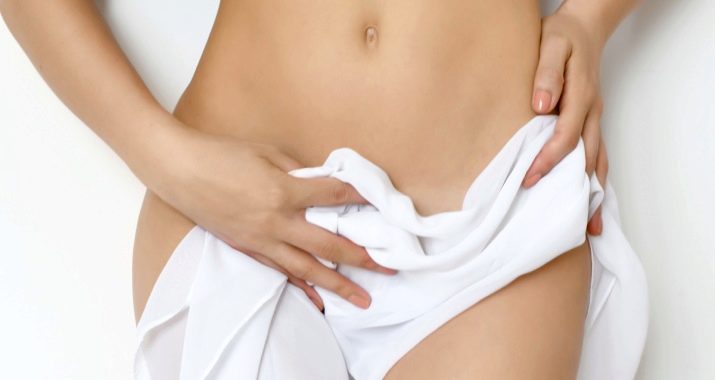
Fundamental rules
What is possible and what is not, how to properly observe the hygiene of the intimate area - it's time to sort out this simple question point by point.
Expert advice.
- A daily shower for intimate hygiene is a must. During menstruation, this procedure should be repeated at least twice (after each change of the pad / tampon / bowl).
- If it is not possible to take a shower, you need to use wet wipes... Conventional, non-antibacterial, non-scented. You can buy those that are used for baby skin care.
- There is no need for special washing liquids (sprays, gels) - doctors insist on this... All accumulated secretions and impurities are easily washed off with warm running water.
- If there is still a request for funds (for example, on critical days), you can find something suitable, always with a pH of 3.3 to 5.2. The composition of such products should not contain fragrances, parabens, dyes, fragrances, aggressive surfactants.
- Do not wash the genitals with a washcloth - many do not even imagine the number of pathogens that live on the surface of this product.
- All manipulations related to washing the groin should be performed from front to back - from the pubis to the anus. Otherwise, pathogens from the anus can enter the urethra, which is fraught with negative consequences.
- You need to wipe the genitals with a separate, designated towel.
- Underwear for girls, girls, women should be exclusively from natural materials, comfortable, suitable in size, not rubbing in any area. Linen change - daily. It is better to wash with hypoallergenic powders, separately from other clothes. New laundry should also be washed before wearing.
- Washing in the shower is true hygiene, but the bath is primarily a relaxant. Still water infections can only spread.
- You cannot wear panty liners every day - this is dangerous for the microflora of the vagina. Only on days of intense natural secretions, in the last days of menstruation (with scant secretions), as well as in the case of mild urinary incontinence.
- If you have to use lubricants, they also need to be safe. Unwanted ingredients in the lubricant: alcohol - because it dries, sugar - creates an imbalance of microflora, menthol - can injure mucous membranes, parabens - allergens, glycerin - in the context of this agent is considered a breeding ground for fungi.

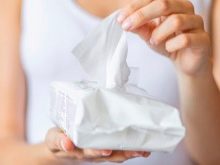
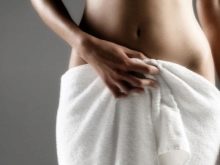
That's all, there are no other tricks. By following these rules, you do not have to worry about insufficient hygiene.
What means are used?
The market offers a huge number of tubes, bottles with products that, according to the information on the labels, improve the condition of the intimate area and make the care better. Of course, there is more marketing here than truth. Powders, mousses, non-medicinal suppositories, milk for the genitals are useless at best, dangerous at worst.
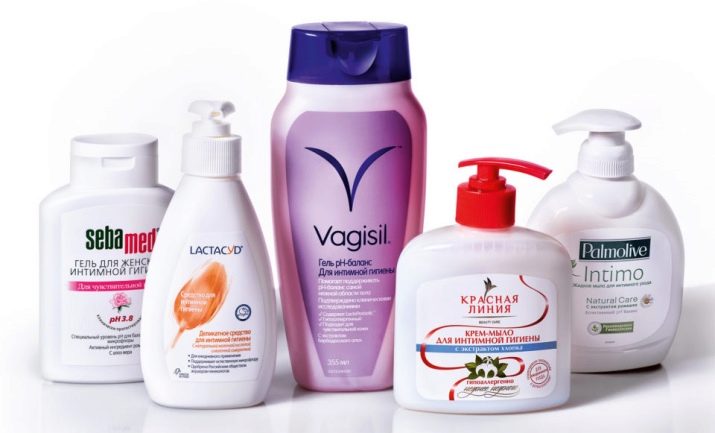
Still, it is worth reviewing some of the tools.
- Intimate soap - one of its essential components will be lactic acid. Also, there may be plant elements suitable for caring for the intimate area. Dyes, preservatives, fragrances are excluded in high-quality soap. But soap can only be used by women who do not have problems with dry genitals.
- Gel - it is recommended for girls with sensitive skin. There is no soap in the soft emulsion, but lactic acid, which is important for the balance of microflora, is also included. There may also be components of natural herbs. A small portion of the gel is diluted in warm water, applied to the mucous membrane, and then washed off thoroughly.
- Foam and mousse - these forms are suitable for women with very delicate skin.If you choose funds of this type, then only in a bottle with a dispenser.
- Wet wipes - should be an alternative to the soul when it is impossible. But not a full-fledged replacement for him.
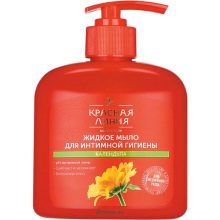
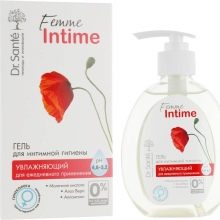
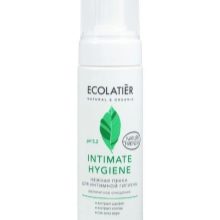
Important Notes: A healthy vaginal pH is between 3.8-4.5 units. This allows natural lactic acid, which is formed during the life of lactobacilli, to make it impossible for pathogens to multiply. The pH level in intimate hygiene products should be neutral.
Attention! Girls under 12 years old can use products with a pH of 6.5-7. Women in menopause can count on the same values. Pregnant women should rely on values of 3.5-4.5 units, and all other women from 13 to 45 years old (approximately) should choose products with a pH level of 4.5-5 units.
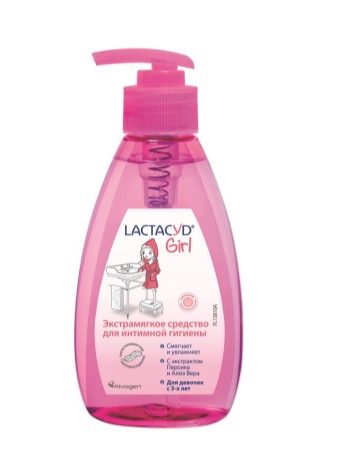
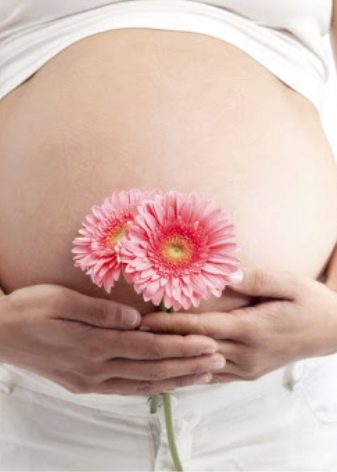
In addition to lactic acid, the following are considered useful in such products:
- triclosan - harmful to pathogens;
- calendula extract - has a strong anti-inflammatory effect;
- chamomile extract - heals wounds;
- sage extract - is considered an excellent antiseptic;
- panthenol - moisturizing ingredient;
- oak bark extract - has a strong regenerating effect;
- vitamin D - softens the skin.
If you want to use such products every day, you need to buy only those on the packaging which says “for daily use”.
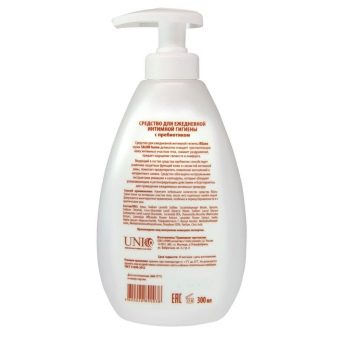
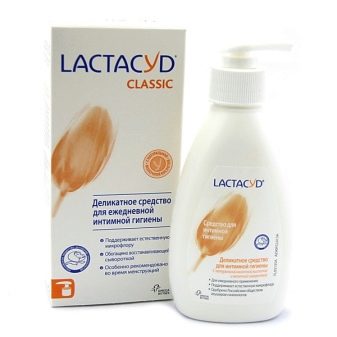
Doctors also warn about things that seem harmless, but can be harmful: for example, about bath bombs. Like a bubble bath (by the way), they are dangerous because of their composition, which can upset the balance of the vaginal microflora. This does not mean that you need to get rid of bombs and foam once and for all: once a month you can afford such a pleasure.
Required items
The main issue, a stumbling block in matters of intimate hygiene concerns douching. There is a wide field of folk recipes: from a conventionally innocent solution of chamomile to pouring vinegar into the vagina. Douching is not a must-have and safe care routine. There is more harm from it, because one douching session is able to remove beneficial bacteria from the vagina, too.
Neither vinegar, nor chamomile, nor chlorhexidine can improve the condition of the microflora. They will not get rid of a bad smell, because if it is, it is either insufficient hygiene or an infection. All this is not corrected by douching. Out of ignorance, many modern women - and this is terrible - believe that douching will get rid of natural secretions. But they should be, they serve as a measure of the normal state of the genital area. If they are white and transparent, their volume is normal, there is no strange smell, one can only rejoice - the woman is healthy, her reproductive system is functioning as it should.
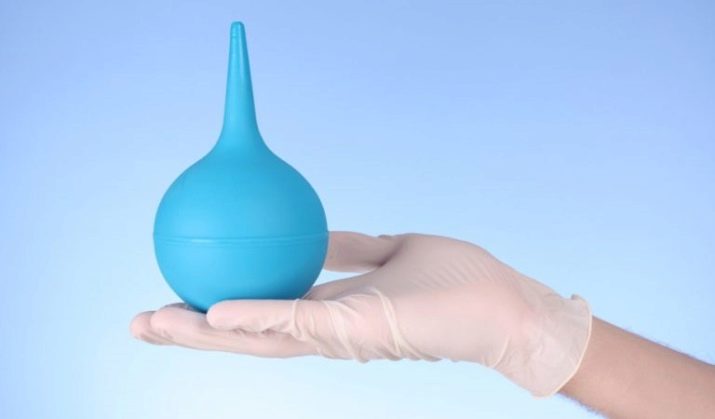
What items are really needed for intimate hygiene.
- Gaskets... Normal, for critical days (day and night), as well as daily for cases of urgent need. We repeat, you can't wear daily daily wear all the time. Rather, they will help out if there is no opportunity to wash and change underwear.
- Bath for procedures. Not a required item, but can be useful if a doctor prescribes sitz baths to eliminate thrush, for example, or skin irritation.
- Towel... It is strictly for the groin area, it changes regularly.
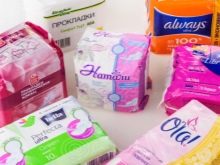

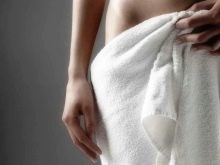
Intimate means - at will and in moderation, tampons - with all caution and not on an ongoing basis, a washcloth is not needed at all. Genital deodorant is more than a controversial remedy. A clean, well-groomed intimate area does not smell.
It is best to have a few sterile clean cotton rags ready to use instead of your daily routine while at home. They allow the skin to breathe, do not create a dangerous greenhouse effect.
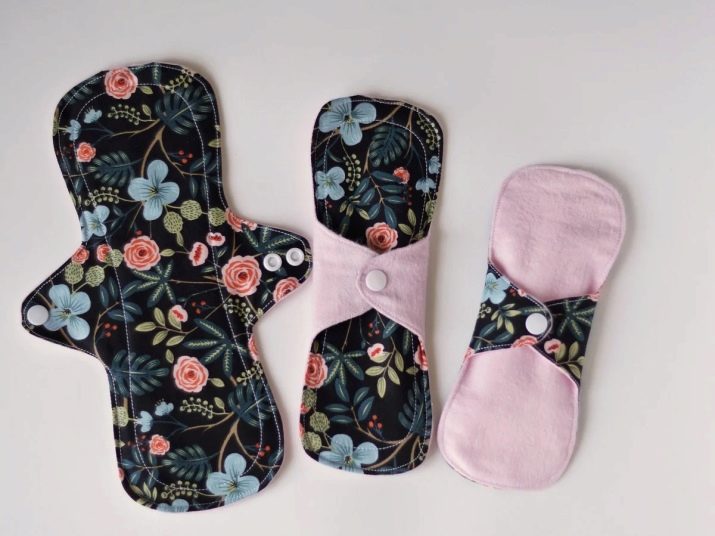
Care of intimate areas on critical days
Hygiene during menstruation is a question that is worth learning back in puberty. On the days of menstruation, the external pharynx of the uterine cervix is slightly open, which facilitates the outflow of secretions from the uterus. That is, the uterine cavity these days is more vulnerable to the penetration of pathogens. Regular washing during menstruation is not just a morning shower, it is constant washing of the genitals after each pad change. This should be done at least 4-5 times a day.
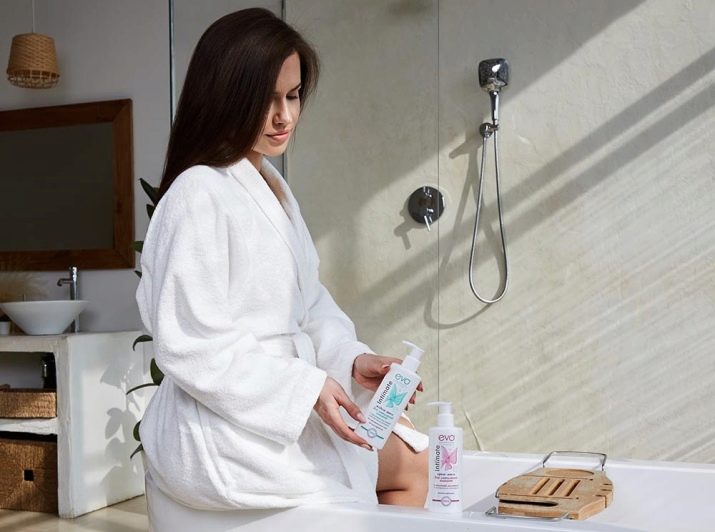
Expert advice:
- bath, sauna, bath during menstruation are excluded;
- the gaskets should be changed every 2-3 hours, if they filled with secretions earlier - do this immediately as they fill;
- you should also hurry with tampons - more than 3 hours in the vagina, and they begin to be dangerous;
- if a woman uses a menstrual cup, it changes about once every 4-5 hours;
- scented pads are fraught with the development of allergies, it is better to refuse them;
- girls cannot use a bowl or tampons, only pads;
- wash yourself with plain water, the temperature of which is equal to body temperature, you can add chamomile infusion to the water;
- after washing, the genitals can be gently blotted with a towel: do not rub, but only gently get wet;
- panties during menstruation, as a rule, are changed more often than once a day;
- it is not worth wearing thongs - pads are poorly attached to them, they rub the skin, which on the days of menstruation is fraught with completely unnecessary problems.
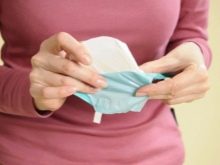
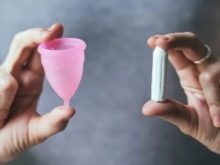

Swimming in fresh water on menstrual days is also unacceptable, although doctors do not prohibit swimming in the sea.
But such procedures require the use of tampons, which, as already noted, is dangerous.... From a certain point, they begin to interfere with the natural outflow of secretions from the uterus, which is very harmful. It is even possible to develop toxic shock syndrome, and this is already a risk leading to the hospital.
Sex on the days of menstruation is also undesirable: and this is not even a question of embarrassment or inconvenience, but the same threat of pathogens entering the vagina. It is frivolous to use these days for safe sex. Rather, a woman wants privacy, peace, relaxation. She may feel heaviness in the groin area, which is to a certain extent normal, she may want to lie down more, rest, avoid activities.
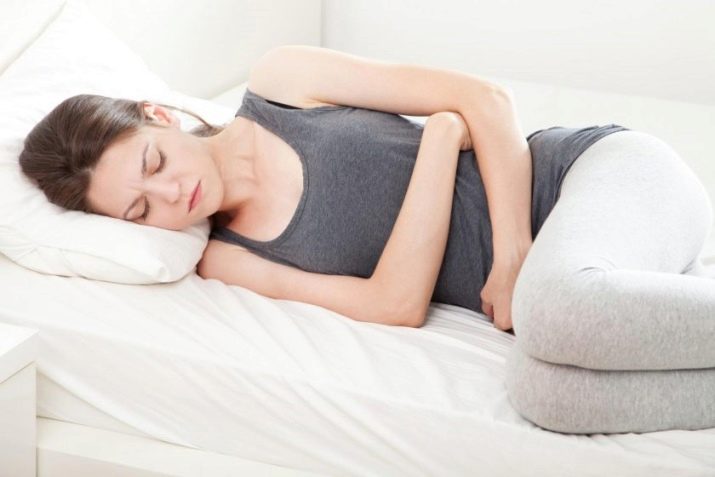
Hygiene during pregnancy and after childbirth
Every pregnant woman takes responsibility for herself and her baby. Even inadequate hygiene can lead to serious problems for the fetus: from the risk of miscarriage to infection of the fetus. Do not be afraid, you just need to remember a few reinforced concrete rules.
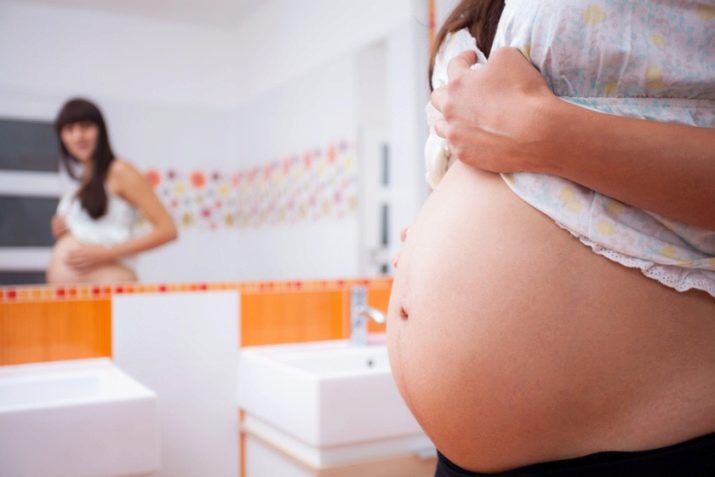
7 rules for intimate hygiene of pregnant women.
- The shower is safe, the bath is not. Yes, sometimes you want to relax in a hot bath, but it is better to do this after childbirth, when the body recovers.
- Sauna and steam bath will also wait until "free time". You should not expose the body to unnecessary stress and allow high temperatures to test it for strength.
- It is better not to use any intimate means, and if this does not work out, preference is given not to liquid soap, but to gel or foam.
- The water temperature is neither cold nor hot. Any thermostress puts the body in great danger.
- You need to wash yourself in the same way as before pregnancy, from front to back.
- You only need to wear comfortable underwear made from natural materials.
- Any strange smell, changed color of discharge is a reason to visit a doctor as soon as possible.
Do not be afraid of increased pigmentation in the genital area - these are hormones that "paint" the skin. After giving birth, everything will return as it was before. In addition to washing your groin area daily, you should shave your pubic hair. They are also dangerous in terms of the buildup and entry of pathogens into the vagina.
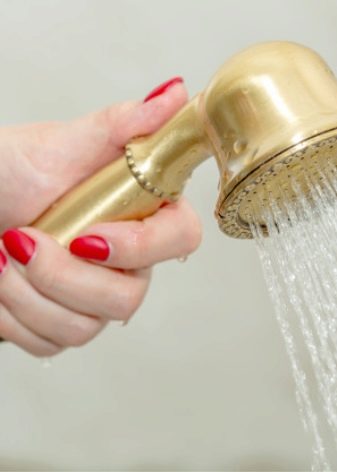
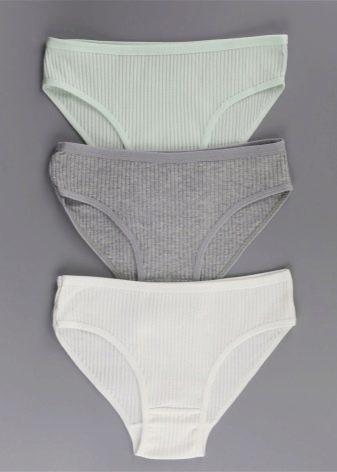
Principles of postpartum intimate hygiene.
- The area of the uterus, to which the placenta was previously attached, after its discharge - the wound surface. The placental site does not regenerate very quickly, because there are many small vessels, therefore it is more than important to observe hygiene. Any miss is fraught with endometritis, an inflammatory process in the uterus.
- If during childbirth a woman has a ruptured genital tract or she underwent an episiotomy, there are even more requirements for hygiene. The stitches can fester if you do not monitor their condition, do not process them according to the doctor's recommendations. The most correct thing that can be for the speedy healing of wounds is air baths. A young mother needs to find an opportunity to spend at least half an hour a day without underwear.
- Postpartum discharge (lochia) may surprise a young mother... Not everyone knows what they are and why they are natural. In the early days in the hospital, when the discharge is very abundant, it is necessary to use gynecological pads. They will withstand such a volume of secretions. At home, you can switch to ordinary ones, but only without a net, with a soft cotton surface.
- The bathroom after childbirth will also have to be postponed. At least a couple of months, until the lochia disappears, you need to limit yourself to a shower. But it is taken every day, preferably in the morning and evening.
- The mammary glands should be washed after each feeding.... It is better to do this with plain water without using additional agents. And then gently blot with a specially designated towel. If necessary, you can use pads for the chest: there are such, they save from leaks, do not allow the skin to irritate and sweat.
- To absorb secretions, which are called lochia, only pads are used. No tampons! They need to be excluded for at least a few months.
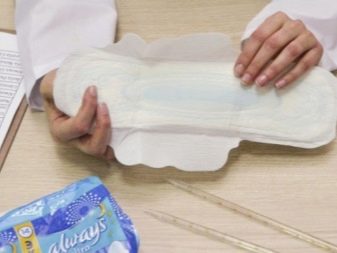
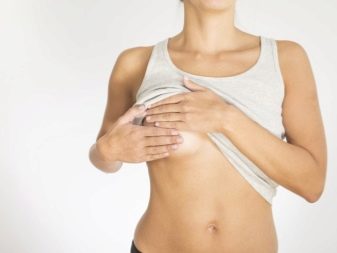
After childbirth, a woman may not feel the urge to urinate: the pressure on the nerve endings in the pelvic zone, associated with the passage of the child through the birth canal, affects. But you definitely need to go to the toilet, an overflowing bladder will also be a threat to the growth of pathogens.
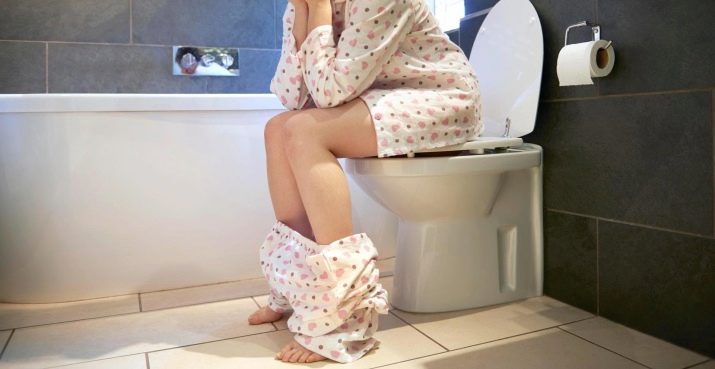
Let new knowledge help prevent all risks and only add health!








